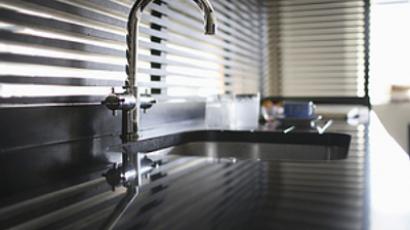Let it snow, let it thaw, let it flow
Europe has been hit by a spate of extreme winter weather, but the Russian capital is more used to freezing temperatures and snow storms than the rest of the continent.
Moscow is blanketed every winter and city authorities already have tried-and-tested techniques to combat the seasonal snowfall. Over 10,000 ploughs are sent in and collect over 200,000 cubic meters of snow every day.
However, one matter of concern is where to put all those millions of cubic meters of snow that get collected over the winter months. Environmentalists are pushing for more friendly ways of removing the massive piles of snow from the streets.
One solution is a facility that melts the snow into water, filtered, and then mixed with the sewage systems.
There are 27 stations around the city to which the trucks bring the snow. They dump it off, garbage and rocks are sieved out and then turned to water.
Underneath the facility is a chamber where the snow is melted by warm sewage waters. Then via the pipes it gets into the sewage system and goes through the regular purification systems outside the city.
The anti-icing chemicals that are spread on the roads and collected with the snow are extremely damaging if they are not disposed of correctly. So the regular sewage cleanup deals with the contamination.
“Moscow's main cleaning station on the outskirts of the city has various methods to make sure there is no trace of petrochemicals or any other toxins in the water anymore,” assures Mikhail Serkin, the director of a municipal snow melting facility of Mosvodokanal state unitary enterprise.
Every day one melting station alone 'recycles' around 3,500 cubic meters of snow – around 300 fully loaded trucks. The more of them that line up to dump off their load, the faster the traffic can flow through the city.
“Just a few years ago all the snow, mixed with toxins and petrochemicals was just dumped in the Moscow River. It was very damaging to the environment. Now we have solved this problem,” concludes Serkin.














